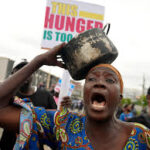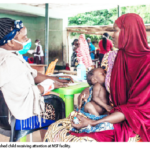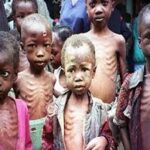Child Nutrition in Africa: Fighting Stunting & Malnutrition

Child nutrition remains one of Africa’s greatest public health challenges. Despite the continent’s agricultural diversity, millions of children are undernourished, with many suffering from stunting—a condition that limits both physical and mental growth. According to UNICEF, about one in three African children under five is stunted, preventing them from reaching their full potential. Addressing this issue is critical not only for child survival but also for Africa’s long-term development and prosperity.
What Is Stunting and Malnutrition?
Stunting is the result of chronic undernutrition during the first 1,000 days of a child’s life, from conception to age two. Unlike acute hunger, which causes visible wasting, stunting is more silent but equally dangerous. It hinders brain development, weakens immunity, and limits future productivity.
Malnutrition can appear in different forms:
-
Undernutrition – when children lack adequate calories and essential nutrients.
-
Micronutrient deficiencies – lack of vital vitamins like vitamin A, iron, and iodine.
-
Overnutrition – a growing issue in urban Africa, where poor-quality diets lead to obesity in children.
This creates a double burden of malnutrition—where undernourished and overweight children often live side by side in the same community.
Causes of Child Malnutrition in Africa
Several interconnected factors drive the crisis:
-
Poverty – Families with low income often rely on low-cost, nutrient-poor foods.
-
Poor maternal health – Malnourished mothers give birth to underweight babies.
-
Frequent infections – Diseases like malaria, diarrhea, and intestinal worms worsen nutrient loss.
-
Inadequate feeding practices – Lack of exclusive breastfeeding and poor complementary foods.
-
Urbanization – Shift from traditional nutrient-rich diets to processed and fast foods.
The Health and Social Impact
The effects of stunting and malnutrition go beyond physical appearance:
-
Weakened immune systems make children more prone to infections.
-
Cognitive impairment reduces school performance and learning potential.
-
Economic impact – Adults who were stunted as children earn less, reinforcing poverty cycles.
-
Chronic diseases – Malnutrition in early life increases the risk of obesity, diabetes, and heart disease later on.
A malnourished child today often becomes an unproductive adult tomorrow, threatening Africa’s economic growth and social stability.
Solutions to Combat Stunting and Malnutrition
Tackling the crisis requires both immediate and long-term strategies:
-
Maternal health programs – Providing pregnant women with iron, folic acid, and balanced diets.
-
Exclusive breastfeeding – Promoting breastfeeding for the first six months of life.
-
Nutrient-rich complementary foods – Using affordable local staples such as beans, millet, and orange-fleshed sweet potatoes.
-
Food fortification – Adding vitamins and minerals to everyday foods like flour, salt, and oil.
-
School feeding initiatives – Ensuring every child receives at least one balanced meal daily.
-
Community farming – Supporting families to grow nutrient-rich crops in home gardens.
-
Awareness campaigns – Educating parents about affordable, traditional food options.
Inspiring Success Stories
Several African nations are making progress. Ethiopia has significantly reduced stunting by combining maternal health support, education, and community farming. Nigeria’s Home-Grown School Feeding Program reaches millions of children daily with nutritious meals while supporting local farmers. These examples show that with political will and coordinated efforts, change is possible.
Conclusion
Child nutrition is a foundation for Africa’s future. Fighting stunting and malnutrition is not just about feeding children—it is about breaking cycles of poverty, boosting education, and strengthening economies. By investing in better nutrition today, Africa can raise healthier generations tomorrow, ensuring its children grow, thrive, and lead the continent into a brighter future.
Written by Fawzi Rufai, Medically Reviewed by Sesan Kareem



